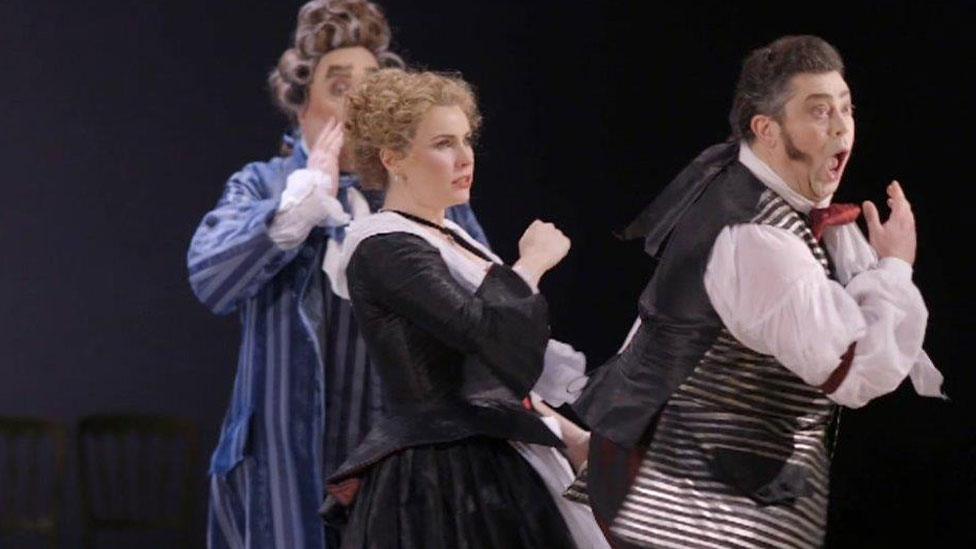'Knuckle-headed' approach to creative industries claimed
- Published
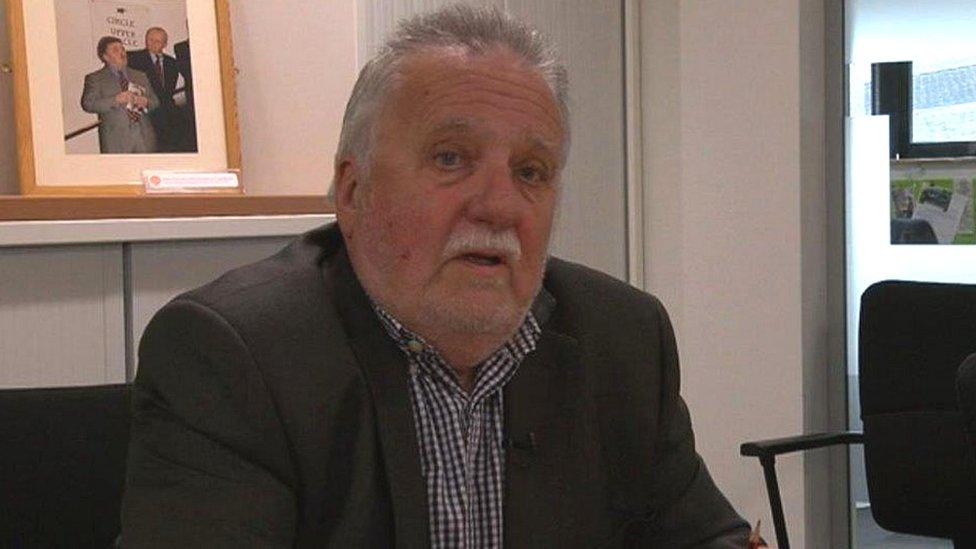
The Welsh Government sometimes operates in a "knuckle-headed, philistine fashion" towards the creative industries, the outgoing Arts Council of Wales (ACW) chairman has claimed.
Prof Dai Smith said some parts of government had a "silo mentality."
He said ACW had been subjected to a "dictat" to keep away from the creative industries.
His nine years as chairman of the body that distributes funds and grants to arts organisations ends of Thursday.
His criticism was levelled at the government's relationship with film and TV productions.
The Welsh Government has argued the creative industries are a key sector in the economy, with employment increasing by more than half in the last 10 years.
There have been 1,728 production inquiries alone over the last five years to the TV/film arm of Welsh Government - Wales Screen.
These have turned into 300 productions hitting the big and small screen, with ministers pointing to a strong list of projects in the pipeline.
But Prof Smith said: "I don't think government has got it right at all in the past few years when they tell the Arts Council, as they have, to keep away from the creative industries because that isn't our job.
"I think in some parts of government there has been a silo mentality.

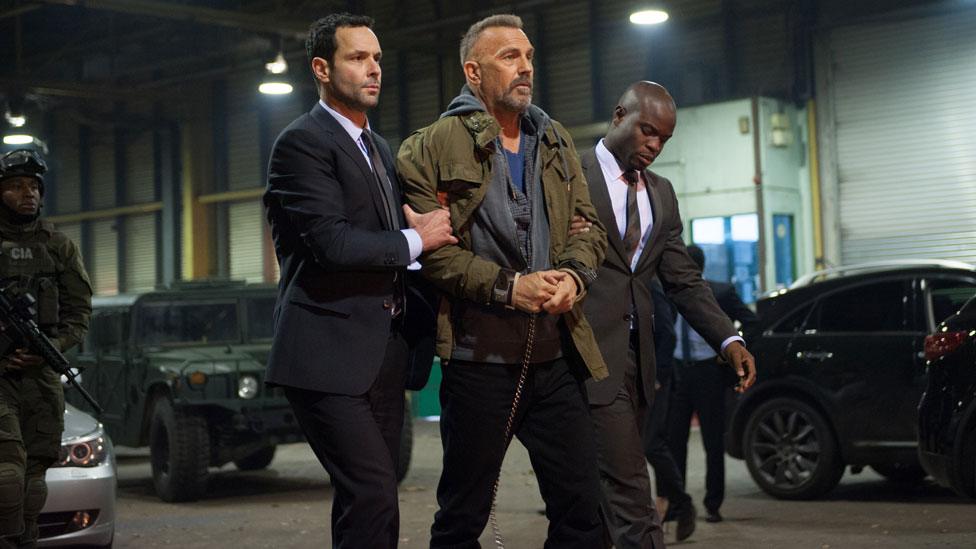
Actor Kevin Costner was recently filming in St Athan
HOLLYWOOD FLIES INTO ST ATHAN
The latest production supported by Wales Screen is Criminal, an action thriller starring Ryan Reynolds.
Co-stars Kevin Costner and Tommy Lee Jones filmed one scene at the super hangar at St Athan, Vale of Glamorgan, which doubled as a US airbase.
The production crew were there for two days and filmed over the course of one night, for around 12 hours when the airfield was not needed.
The film is released in UK cinemas on 15 April.

"And there are some parts of government ministerial office which seem incapable of understanding that cooperation and partnership is the name of the game, not chivvying and ordering people about and sometimes getting it wrong in a knuckle-headed, philistine fashion."
Prof Smith said the arts offered a good return on public investment, but he was concerned some in government considered the arts to be "elitist" and not as important to the economy as the film and TV industries.
He said: "It's a mistake to think of the arts as some kind of elitism. The arts are elite in the sense of excellence, but nobody questions elite sport.
"And there have been times in the last 10 years, to be fair, when we have been urged by various ministers to get more involved in creative industries, which we did. It's only in recent times that - shall we call it the dictat - has stuck a little bit in my craw."
Since 2010, ACW's budget from the Welsh Government has fallen, forcing it to cut the funds it makes available to arts organisations and to make savings among its office staff.
Prof Smith said he did not accept funding for the arts had to be reduced.
"What we hear all the time is, 'times are hard, money's short, austerity'. Sorry, I don't swallow that. We get something like 0.2% of the entire Welsh Government budget in direct grant-in-aid," he said.
"Public funding for the arts in Wales is an absolutely essential investment. And it's a risk investment, because you don't know what you're going to get.
"But that's the joy of it. That's what makes us sophisticated, I think that's what makes us a country with something to say to the world as well as to ourselves."
The Welsh Government declined to comment.
- Published4 March 2016
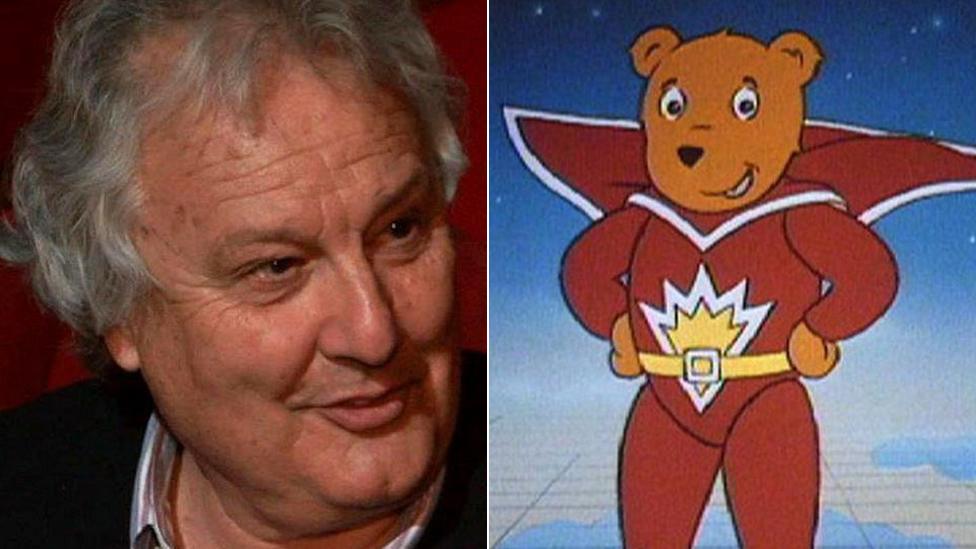
- Published18 March 2016
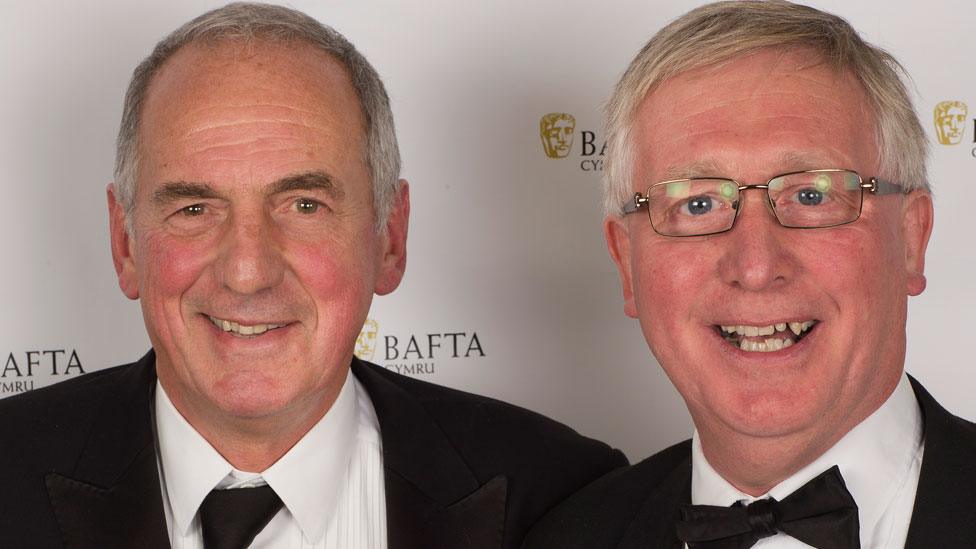
- Published24 February 2016
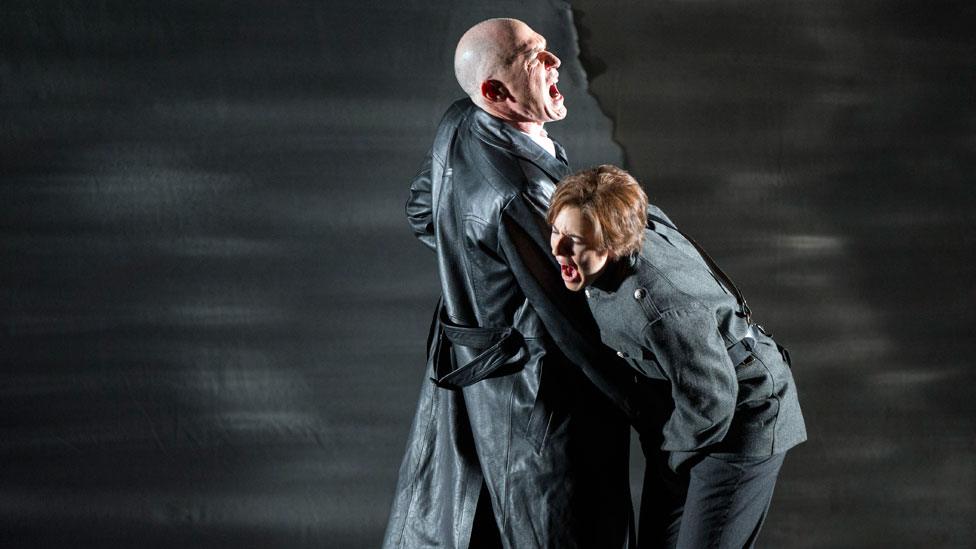
- Published24 February 2016
